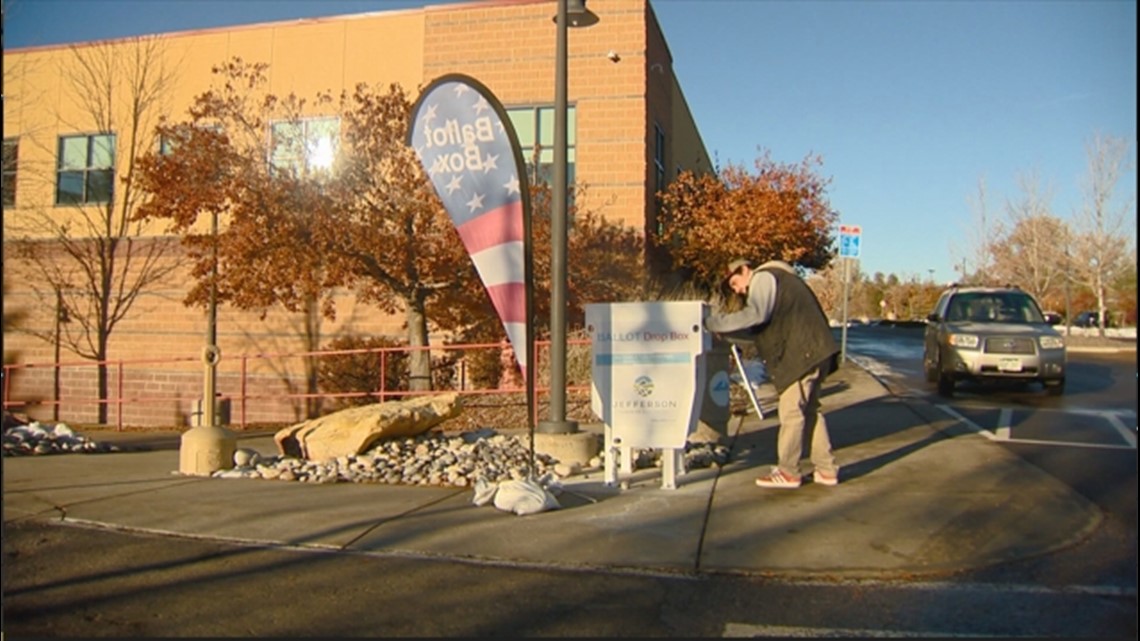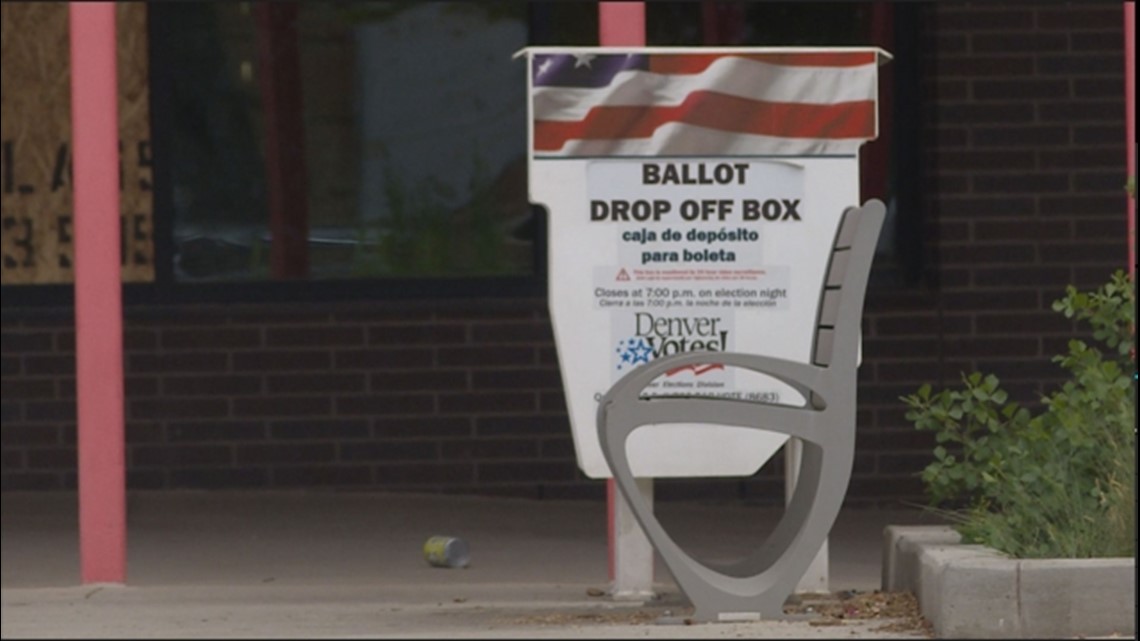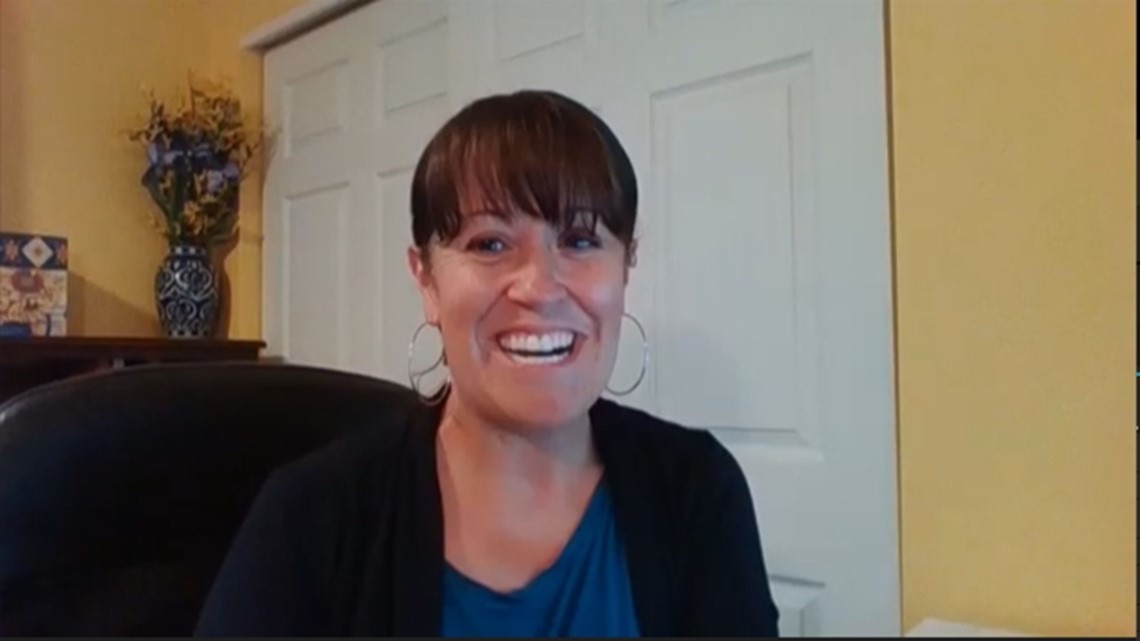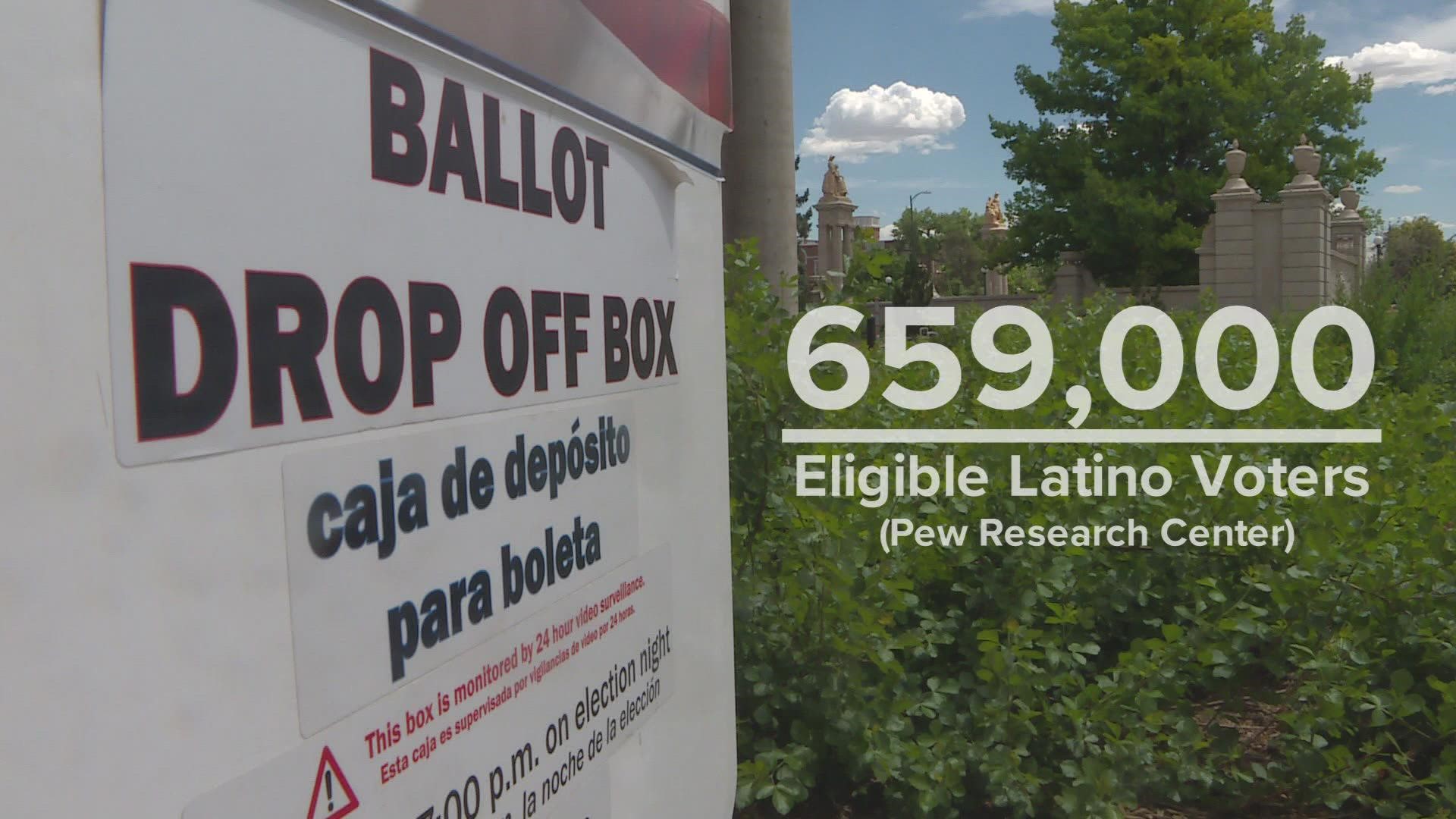DENVER — While voter turnout by race and ethnicity in Colorado's June primary isn't yet clear, turnout in general by Hispanic and Latinos is lower than expected, some experts say.
"I know that there's been talk about it in this election that, you know, that Democrats shouldn't take for granted that they're going to be able to mobilize Latino voters," said CU Boulder Professor Celeste Montoya. "The Republicans have some opportunities to make some inroads."
Montoya, with a PhD in Political Science, teaches at the university's Women and Gender Studies Department. Her research has focused on gender and racial politics in the U.S. and beyond, and also runs the Miramontes Arts and Sciences Program, which is predominantly Latino. She's also a board member for the Colorado Latino Leadership, Advocacy and Research Organization (CLLARO).
She says a big role in lower voter turnout among Latinos is a lack of representation and outreach, among other things.
"They don't necessarily see themselves be represented by the political parties," she said.


Different reports provide different perspectives
Tracking voter turnout by Hispanic and Latinos in Colorado may vary depending on the report one reads, including which party affiliation most Latinos fall under.
"And I think we need better data about this," Montoya said. "We need that precinct level data shows that, you know, that it varies, that it still is leaning very heavily Democratic, but that that's not a given."
According to the 2020 Census, 21.9% of Colorado's population are Hispanic or Latinos.
Recent data from the Pew Research Center found that there are around 659,000 eligible-Latino voters.
However, an older report published by the Latino Data Project, Latino Decisions and Latino Leadership Institute, said 57% of Latinos were registered to vote, back when the amount of eligible Latino voters was at 550,000.
"In 2012, 73% of Latinos cast a ballot, but that number declined to only 55% for the midterm elections in 2014," the report read in part. "This means that 55,000 Latinos who voted in 2012 did not cast a ballot in 2014."
The lack of Latinos in Colorado registered to vote continues with a report from the National Association of Latino Elected and Appointed Officials Education Fund (NALEO).
In it, it projects 280,000 Colorado Latino voters, will actually vote in the November election later this year.
"I think that there's a lot of places in Colorado where Latinos, if they were fully mobilized, could make a significant difference in election outcomes. And so I think that in some places that's more recognized than in others," Montoya said.


The issue with outreach and 'mobilizing'
While access to voting may have barriers facing Hispanic or Latinos in certain states, Montoya believes it's different in Colorado.
"And so a lot of the barriers that Latinos face in other parts of the country are not there. Now, it doesn't mean that they don't exist. It just means that our election system and our rules, especially under the current leadership, has really aimed towards accessibility," she said. "In other parts of the country, Latinos sometimes have trouble getting to the polls because of transportation issues, that there are few polls that are available or that their hours are limited and that work schedules aren't always conducive to being to do that."
Whereas in Colorado, she says a bigger issue has been reaching Latino voters, at times in a culturally responsive way.
"And so I think that there are still, you know, in some places, there's a lot of outreach. And in some parts of the state where there are big Latino populations, the outreach is not so good," she said, adding that particularly in rural areas, or areas that tend to lean Republican, see a bigger problem with outreach.
"And there are lots of Latinos that are there of both party affiliations, are non-affiliated whatsoever, that don't necessarily have the information that's necessary to vote. And so I think that that's a really important key component to it," Montoya said.
Another issue is actually mobilizing Latino voters, which Montoya believes falls on both Democrats and Republicans.
"And so I think there's a lot of work that can be done by both political parties in kind of connecting and and showing people right and being responsive and making sure that Latinos are well represented, not just the issues, but also in terms of the people that are being elected. The people who are - are running for office," she said.
Additionally, issues that are important to Latinos, Montoya says, are not always represented by either party.


"...But there's also an increasing number of people who are less likely to affiliate with the parties. So they don't really see either party as really fully representing their issues," Montoya said.
According to a survey of 1,000 Latinos in Colorado, the top five issues among Latino adults included ensuring workers have a living wage and safe working conditions, improving wage benefits for seasonal and farm workers and setting up a state fund to help small businesses.
There are also newer immigrant populations in the state that may be learning the political system, she says.
Overall, she says outreach could make the difference in turnout.
"I think a lot of Latino scholars will say that kind of every election, that there's a lot of unrealized untapped potential in terms of mobilizing the Latino population," she said. "And it's really going to take a concerted effort, not just by the political parties, but also organizations at the grassroots, to really make sure that the community knows the importance of being involved and to really exercise that voice."
SUGGESTED VIDEOS: Politics

